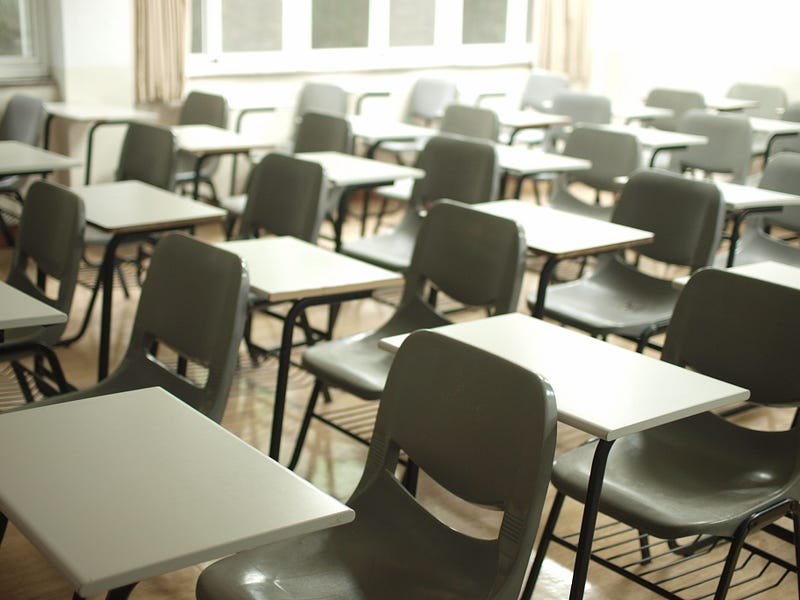New York City’s education department bans students and teachers from using ChatGPT.
ChatGPT
New York City’s education department bans students and teachers from using ChatGPT.
Controversial ChatGPT Tool Banned by New York City Education Department

Introduction
The New York City education department has just announced a ban on the machine learning chatbot, ChatGPT, for students and teachers across their school networks and devices. This decision was made due to the potential “negative impacts” it could have on student learning, as reported by Chalkbeat New York. With this ban, students and teachers will no longer be able to access ChatGPT on school networks or devices.
What is ChatGPT?

ChatGPT is a machine learning chatbot developed by OpenAI, a company founded by tech entrepreneur and investor Sam Altman. It was released in November 2022 and since then has generated both hype and fear about the potential of artificially intelligent systems to disrupt creative industries.
ChatGPT is designed to understand natural language and generate text based on it. The idea is that it can take in a user’s input and generate text in response, stimulating conversation. While this might be useful in a few areas, such as providing quick and easy answers to questions, it can be a problem when it comes to more complex tasks, such as writing essays or solving programming problems.
The ChatGPT technology has been met with much concern by educators and parents. As first reported by Chalkbeat New York, the education department of New York City recently banned the use of ChatGPT in schools. The department spokesperson, Jenna Lyle, explained that chatGPT access is restricted on New York City Public Schools’ networks and devices due to concerns about negative impacts on student learning. She added that “while the tool may provide quick and easy answers to questions, it does not build critical-thinking and problem-solving skills that are essential for academic and lifelong success. “A department spokesperson said individual schools can request access to ChatGPT for the purpose of studying AI and technology-related education. OpenAI also said that they are currently developing “mitigations” to help identify when text has been generated by their system. They have also called for transparency when using their AI-generated text, emphasizing that users should be up-front with their audience.
It remains to be seen how the ban will impact students and teachers, but it serves as a reminder of the importance of being aware of the potential risks and benefits of using artificial intelligence.
Why was it banned?

The New York City education department recently banned students and teachers from using ChatGPT, a machine-learning chatbot developed by OpenAI.
The main reason behind the ban is “concerns about negative impacts on student learning” according to an education department spokesperson, Jenna Lyle. Lyle told Motherboard in a statement that “due to concerns regarding the safety and accuracy of content, access to ChatGPT is restricted on New York City Public Schools’ networks and devices.” She further noted that while the chatbot may be able to provide quick answers, it doesn’t foster the critical thinking and problem-solving skills that are so important for academic and lifelong from my standpoint, OpenAI released ChatGPT in November of 2022, inspiring a lot of talk about how artificially intelligent systems are about to take over in the world of creative enterprises. However, in reality, the chatbot isn’t that smart. In December Stack Overflow banned it for consistently giving incorrect answers to programming questions. According to OpenAI’s CEO Sam Altman last month, “ChatGPT is incredibly limited but good enough to create a false impression of greatness” and it’s “a mistake to rely on it for anything important right now.”

Conversely, some teachers are reported to be in a state of near panic, especially as technology is making it possible for students to cheat on assignments according to the Washington Post. According to an article in the New York Times, the ChatGPT cannot be distinguished from real human students, who are vastly better than the ChatGPT. With all these factors combined, it’s easy to see why New York City felt it necessary to ban ChatGPT from their schools’ networks and devices.
How will this affect students and teachers?

The main concern for students and teachers is that it may lead to cheating on assignments or tests, as the Washington Post reports some teachers are “in a near-panic” about the technology. Moreover, New York Times also examined ChatGPT’s writing to find it indiscernible from that of real students, a few months later.
Furthermore, technology is still in its infancy. OpenAI released ChatGPT in November 2022. While OpenAI has made it clear that ChatGPT should not be used for any purposes which may mislead people, they are still actively developing new mitigations to help anyone identify text generated by the system. Their API and creative tools such as DALL-E and GPT-3 require users to be upfront with their audiences when using AI-generated text.
Ultimately it is important to consider the potential benefits and disadvantages of using artificial intelligence in education before making any decision, as well as listen to perspectives from all different parties and examine the evidence.

